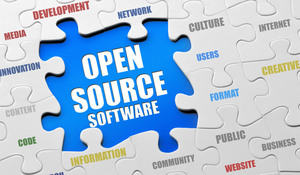Top Open Source Monetization Methods for Developers
Corps
The open source movement has gained immense traction over the years, fostering a community of collaboration and innovation. While many developers contribute to open-source projects out of passion, the question of monetization often arises. How can developers sustain their work and earn a living while contributing to open source? Here, we explore some of the top monetization methods available for developers in the open-source ecosystem.
1. Freemium Model
The freemium model is one of the most popular monetization strategies in the open-source world. Developers can offer a core version of their software for free, allowing users to test its functionality. The premium version typically includes advanced features, technical support, or additional resources. This model can attract a large user base, and as some of these users seek enhanced functionalities or support, they are likely to convert into paying customers.
Example:
A notable example of this model is Red Hat. They provide free versions of their software but charge for support and advanced features, effectively converting their user base into revenue.
2. Donations and Crowdfunding
Many open-source projects rely on donations from their users or the broader community. Platforms like Patreon, Open Collective, and GitHub Sponsors enable developers to receive financial support directly from their users. Crowdfunding is another option, where developers can create campaigns on platforms like Kickstarter or Indiegogo to fund their projects or new features.
Example:
Godot Engine, an open-source game engine, uses crowdfunding to support its development, allowing users to contribute directly to the project they benefit from.
3. Consulting and Services
Developers can leverage their expertise by offering consulting services related to their open-source projects. This could involve providing training, custom development, integration, or support services for organizations looking to implement the software. By showcasing their skills and the success of their open-source projects, developers can establish themselves as trusted experts.
Example:
Elastic, the company behind Elasticsearch, provides consulting services alongside their open-source software, helping businesses implement and optimize their solutions.
4. SaaS (Software as a Service)
Transforming an open-source project into a Software as a Service (SaaS) model is another effective way to monetize. By hosting the software and providing users with access through a subscription model, developers can charge for usage, ensuring they generate consistent revenue while maintaining the open-source project.
Example:
GitLab started as an open-source project but has successfully transformed into a SaaS offering with both free and premium subscription tiers, providing users with hosted Git repositories and CI/CD tools.
5. Licensing
Some developers choose to adopt dual licensing as a monetization strategy. They offer their software under an open-source license for the community and a commercial license for businesses that wish to integrate the software without the obligations of open-source licenses. This model allows developers to generate revenue from commercial users while still contributing to the open-source community.
Example:
MySQL operates under this dual licensing model, providing an open-source version alongside a commercial version for businesses needing additional support and features.
6. Corporate Sponsorships
Securing sponsorship from companies interested in a project can be an effective monetization strategy. This approach often involves companies sponsoring the development or maintenance of specific features or enhancements, allowing them to influence the project direction while providing developers with financial support.
Example:
The Apache Software Foundation receives funding from various corporations that rely on its projects, ensuring continued development and support for the community.
7. Training and Education
Developers can monetize their expertise by offering training courses or workshops related to their open-source projects. This approach not only generates income but also helps grow the user base and enhance the project's ecosystem.
Example:
Many organizations and developers offer online courses on platforms like Udemy or Coursera, teaching users how to use their open-source software effectively.
Conclusion
Monetizing open source projects can be challenging, but numerous strategies allow developers to earn a living while contributing to the community. By adopting models like freemium services, donations, consulting, SaaS, licensing, corporate sponsorships, and educational offerings, developers can create sustainable income streams. The key is to find a balance between maintaining the principles of open-source software and generating revenue to support ongoing development. As the open-source landscape evolves, so too will the opportunities for developers to turn their passion into a viable career.












commentaires